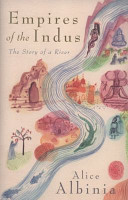This is one of those books that completely passed me by when it first came out. The publication and subsequent awards weren’t even a blip on my radar.
And then in 2018, the film based on the book came out and while I wouldn’t say I was first in line at the theater, I was quite eager to watch it after the almost uniformly glowing reviews. The few that were critical seem to have made arguments implying that it was too happy and that there weren’t enough exposed genitalia and some such. I thought at the time (and still do) that this was really a level of nit picking that borders on the ridiculous.
On February 14 this year I decided that the book would be my reading for the day. I got myself a Kindle version and settled in.
Aciman’s words immediately drew me in. I was plunged without preamble into Elio’s obsessive crush on Oliver. The conflict within is clear and unambiguous. There is nowhere for the reader to run and hide from the young man’s immediate infatuation and inner turmoil. The object of his affection meanwhile seems cold, distant, somehow above it all, and thoughtless even. I was immediately sucked into Elio’s inner world. And through it all is the languid northern Italian countryside simmering in the summer heat, watching the two.
There is something elemental about the attraction. I don’t know if it was intentional on the author’s part but as a reader, I found the role of nature through the story incredibly powerful. This also probably has something to do with my own temperament. I have never been blessed as so many seem to be to remain sanguine through weather changes.
The most obvious difference between the movie and the book is that while the film looks at the two men and the genesis and consummation of their relationship through rose-tinted glasses all aglow in soft-focus gold/sepia tones and the beauty of the two protagonists, the book goes beyond the surface beauty.
Aciman does not spare the reader the messiness of love and sex. Emotional and physical messiness. And let’s face it, no matter how good the act, there is a level of messiness involved which may not always make for comfortable reading or even experiencing. But the very rawness that Aciman brings to this most intimate component of the human experience is what made this book such a compelling read for me.
And of course, in the book Aciman goes much further than where we leave Elio and Oliver in the film. He examines their lives after that hazy tumultuous summer from Elio’s perspective. Oliver is a distant figure (perhaps he always was) who is just out of reach as they both go about their lives. The ravages of time and life accumulate. Life moves on. There are other lovers. There are other experiences. But Oliver will always be the one.
I thought this was a story that captured something that people never talk about when they talk about love. That this often logic-defying experience while being universal is also something that neither the lover nor the beloved will ever be able to explain fully to other people. The object of affection perhaps has it slightly easier in some ways especially in those instances of unrequited love. Despite what Auden said, being the more loving one can be harrowing. Moreover, it is often the one who loves who is asked to ‘get over’ things. While this advice may be given with the best of intentions, it fails to understand that some things are not meant to be got over. Love in its truest form (without expectation or resolution) changes us fundamentally. For better or for worse. I agree with Elio’s father when he says that we are in such a hurry to get over things, to move on that we end up feeling nothing in order to not feel anything and that is a waste. Why trample and stamp out these beautiful human parts of us. Is it any wonder that we lose so much of ourselves and get so brittle?
I say instead that we submit to the feeling. Let it wash over us and wound us and make us whole again because some part of us will always be parts of those we loved well and loved best.













